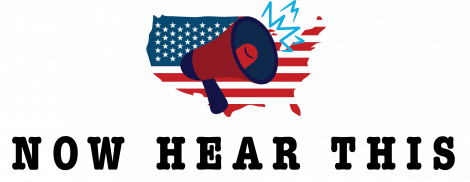Publisher's Corner

Guest Viewpoint
Well, that felt good.
From Service to Startup: A Veteran’s Guide to Building Your Civilian Career Path

This guide is for U.S. military veterans exploring entrepreneurship or remote work options after service. Whether you want to launch a small business or find flexible work-from-home employment, this roadmap helps translate military experience into civilian success.
TL;DR
Veterans have mission discipline, resilience, and leadership — all invaluable in business. Start by identifying transferable skills, researching industries, and pursuing structured training. You can explore accredited programs in cybersecurity and online degrees that open remote career paths. Then, build a small, actionable business or career plan — focusing on flexibility, online visibility, and sustainable growth.
Translating Military Skills Into Civilian Value
Veterans often underestimate how valuable operational and leadership experience can be in business contexts.
Common Civilian Translations:
|
Military Skill |
Civilian Equivalent |
Example Role |
|
Strategic Planning |
Business Operations |
Project Manager |
|
Leadership & Coordination |
Team Management |
Startup Founder |
|
Technical Aptitude |
Systems Analysis |
IT or Cybersecurity Analyst |
|
Logistics & Supply |
Inventory Control |
E-commerce or Retail Ops |
Explore platforms likeCareerOneStop orMy Next Move for Veterans to identify career fits based on your MOS or AFSC code.
Education & Skills Reinforcement for the Digital Economy
In today’s hybrid workforce, education and certification act as your bridge between experience and opportunity.
- Reskill for digital industries. Many high-demand fields like cybersecurity, data analytics, and cloud administration value discipline and precision — traits veterans excel at.
- Leverage accredited online programs. Universities now offer flexible, asynchronous degree programs that fit post-service schedules. You cancheck this out to explore earning an online degree in cybersecurity — one of the fastest-growing remote professions.
- Explore GI Bill® benefits. VisitVA.gov Education Benefits for approved degree and vocational programs.
Starting a Small Business: From Idea to Execution
Step-by-Step Checklist
- Define Your Mission: What service or product fulfills a clear civilian need?
- Validate Your Market: Research viaSBA’s Market Research Tools.
- Register Your Business: UseGov’s Small Business Portal.
- Secure Veteran Funding: Look intoVeteran Readiness and Employment (VR&E) andBoots to Business.
- Create a Marketing Footprint: Start simple — LinkedIn page, Google Business Profile, and a website using SEO-optimized content.
- Set Financial Systems: Free tools likeWave Accounting orQuickBooks help you track cash flow.
Finding Work-from-Home Jobs That Fit Your Lifestyle
For many veterans, remote work offers flexibility and stability during transition.
Top Career Fields for Veterans Working from Home:
- IT & Cybersecurity — demand for remote analysts and technicians is exploding.
- Project Management — operations and coordination skills translate well.
- Technical Writing — clarity and process documentation are highly valued.
- Customer Success & Support — empathy and communication matter as much as technical skill.
- Consulting or Freelancing — veterans can monetize expertise in leadership, safety, or logistics.
Explore job boards like FlexJobs, Hire Heroes USA, or Indeed’s Remote Work Filters.
How-To Section: Building Your Civilian Action Plan
How to Transition Smoothly:
- Assess: List your top transferable skills.
- Learn: Identify certifications or courses that strengthen those skills.
- Plan: Choose between entrepreneurship or remote employment based on financial and lifestyle goals.
- Build: Create a digital portfolio — LinkedIn, personal website, or GitHub if you’re in tech.
Programs, Grants & Tools for Veterans
|
Resource |
Focus |
Type |
|
SBA Veterans Business Outreach Center |
Business Training |
Education & Mentorship |
|
GI Bill® |
Education & Certifications |
Funding |
|
Boots to Business |
Startup Skills |
Online Course |
|
Hire Heroes USA |
Career Transition |
Job Placement |
|
My Next Move |
Skill Translation |
Career Matching |
|
Bunker Labs |
Veteran Networking |
Incubator Support |
FAQs
Q1: What are the first steps for veterans to start a small business?
Begin with a simple plan: define your service, register legally, and research your target audience using SBA tools.
Q2: Can I use the GI Bill for online education?
Yes. The GI Bill covers accredited online degree programs — perfect for remote learners or part-time students.
Q3: How long does it take to start earning from a home-based business?
Expect 3–6 months for setup and early traction, depending on niche and effort.
Q4: Are veteran-specific grants competitive?
Yes, but programs like StreetShares and VR&E prioritize applicants with clear impact plans.
Highlight: Remote Productivity Tools for Veterans
Beyond education and funding, productivity platforms can elevate daily efficiency.
Spotlight Tool:Trello – a free project management platform that mirrors military-style task sequencing. Veterans find its board-based visualization familiar for mission planning.
Alternative tools worth exploring:Asana,ClickUp, andNotion.
Glossary
- GI Bill®: Federal education benefit program for service members and veterans.
- VR&E: Veteran Readiness and Employment, a VA program supporting disabled veterans in job training.
- MOS/AFSC: Military occupational specialty codes used to map skills to civilian careers.
- Remote Work: Employment that allows work from home or off-site locations.
- Entrepreneurship: Starting and managing your own business venture.
Transitioning from military service to civilian employment or entrepreneurship is both achievable and empowering. With structured training, accessible funding, and digital tools, veterans can create sustainable, mission-driven careers — from their homes or new ventures. The key: stay adaptable, stay connected, and keep learning.




